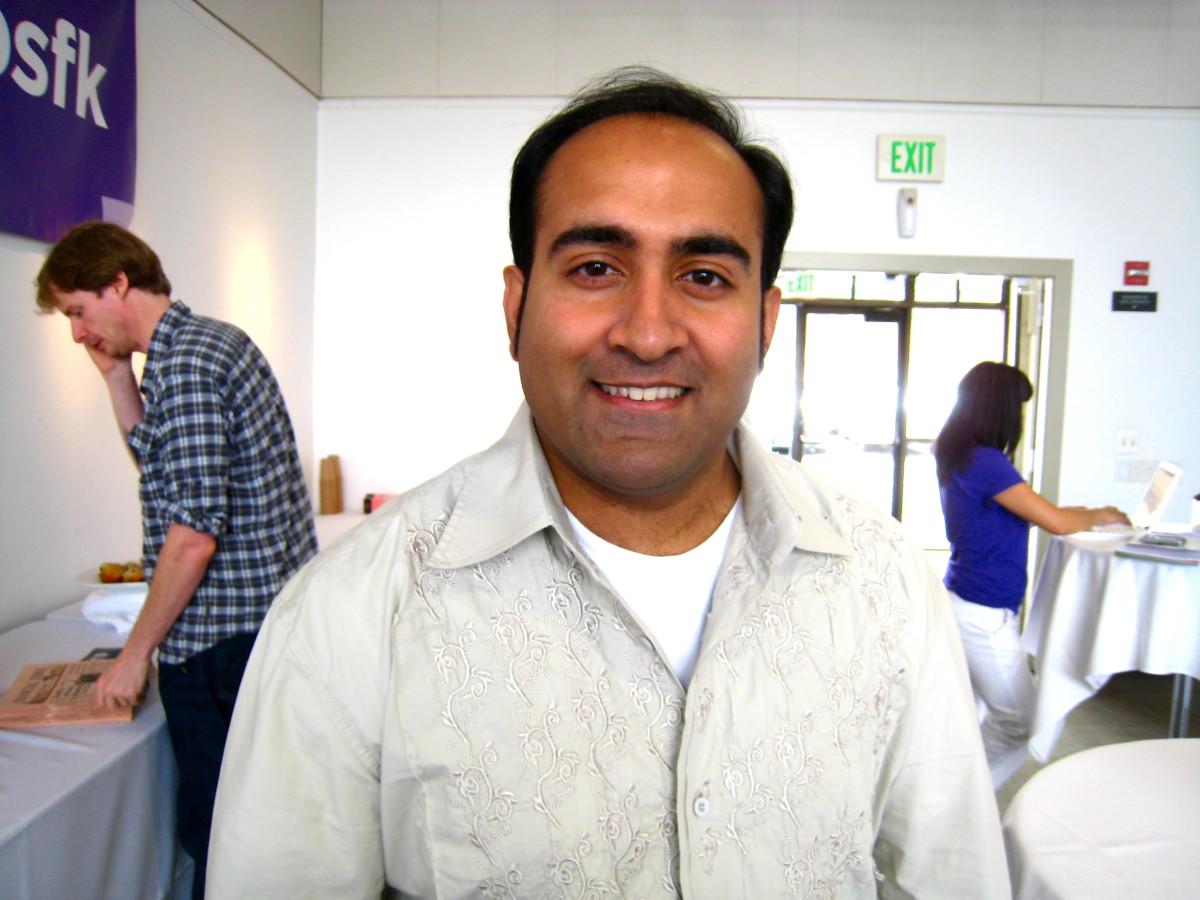Rohit Bhargava calls himself a “trend curator.” Through his books, he’s found the marketing tool in things like popularity (Likeonomics), corporate blandness (Personality Not Included: Why Companies Lose Their Authenticity And How Great Brands Get it Back), and forward thinking (Non-Obvious, his latest).
Bhargava, who teaches global marketing at Georgetown University, is also a D.C. guy who used to wait tables at Kramerbooks. In 2012, he founded the Influential Marketing Group, a digital strategy consultancy firm that he runs from his home in Oakton.
Since he gives so much office advice, we asked him to describe his own work habits. Here are his answers, via email:
###
What are your D.C. roots?
A few months after I was born in India, my dad got a job offer from the World Bank and we moved to the U.S. I grew up in the D.C. area — and apart from a ten-year stretch of college (in Atlanta) and adventure (5 years living in Australia), I have been living in this area. You could say almost exactly three quarters of my life!
Where do you work and what does your office look like?
Like many entrepreneurs, I rotate my working habitat from my home office, to coffee shops, to airport lounges to the occasional coworking space hot desk. My office has a full wall of books (I usually buy about 10 per month), and a desk with a two-monitor setup so I shift quickly between screens and get more productive. I also spend more than 50 percent of my time out of my home office traveling. My business card shares my “address” with six simple letters: DCA/IAD. It sounds like a joke until you see my travel calendar.
How do you get into ‘The Zone’?
It depends on what I’m working on. The “zone” for writing for me is very much about having time to research and read and think before starting to type. I’m a big fan of storyboarding (a technique I have used since learning how to write screenplays many years ago). If it is the “zone” before doing a keynote speech or a high-energy workshop, then I get energy from talking to other people — so I have conversations and try to ask questions. The more energy there is in a room, the more in the zone I feel when speaking.
What’s your gear (computer, software, favorite writing tools)?
I am a HUGE fan of Lenovo Thinkpads and I will never use anything else when it comes to a computer. The keyboard is the killer feature, but I love everything else about how they are constructed and how they just work in any situation. For software, there are a couple of tools that are absolute life savers for me. Another tool I love for helping me to concentrate is a site called Coffitivity which produces the background noise of a coffee shop that you can play through your headphones while working. All the bustle of a coffee shop, without the hassle of actually having to leave my home office (and luxurious double-screen setup)!
What’s your best time-saving tip?
As a professional speaker, I am dealing with a lot of contracts from multiple groups. Having to print, sign and then scan them back in was killing me. Then I found a tool called HelloSign which easily plugs into Gmail and lets you sign and date and send contracts directly from your email inbox. No printing and no scanning. I can’t really even describe how much I love that tool.
How often do you check your email, and do you use any program to get to ‘Inbox Zero’?
I check my email fairly consistently throughout the day (unless I specifically go offline and turn off my web access to focus on writing — a trick I highly recommend to avoid temptation). I can’t say I usually do get to Inbox Zero, but I’m usually at Inbox Fifteen, which seems close enough to me.
When you need to take a break, what are you turning to?
My kids! Seriously, the nice thing about having a home office for at least part of my time is that the bus comes around 4 p.m., which is about the time most people desperately need a break to avoid falling asleep at their desks. So I’ll have an impromptu basketball game, or practice guitar with my son, or start making dinner (I love to cook). Having a set time for an extended break around 4:30 also makes me more productive during the day because I know I need to finish things earlier and can’t plan to stay around the office until 7:30 like I used to do when I was working in a full-time role and commuting downtown every day.
How do you stay ‘human’ while maintaining an online presence?
This one is easier for me than I think it may be for some others. I am lucky to get to travel to a lot of events fairly consistently — so even though I have a home office, I get a LOT of other human interaction. That is so important for being human, but it is also important when you do so much work digitally that it is tempting to believe you are leading a completely virtual existence. All of us need human contact. The other thing we need to learn is when to put our phones down and just enjoy a moment. If my kids grow up seeing me as the kind of dad who always chose to experience the moment instead of trying to grab a phone to take a picture of it, then I think I will have done something right.
Join the conversation!
Find news, events, jobs and people who share your interests on Technical.ly's open community Slack

DC daily roundup: the DMV's VC cooldown, SmartSigns for safer driving; Rep. Schiff's AI copyright bill

Will the life sciences dethrone software as the king of technology?

Delaware tech leaders gather at White House for action summit with Biden and Harris

